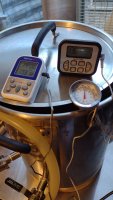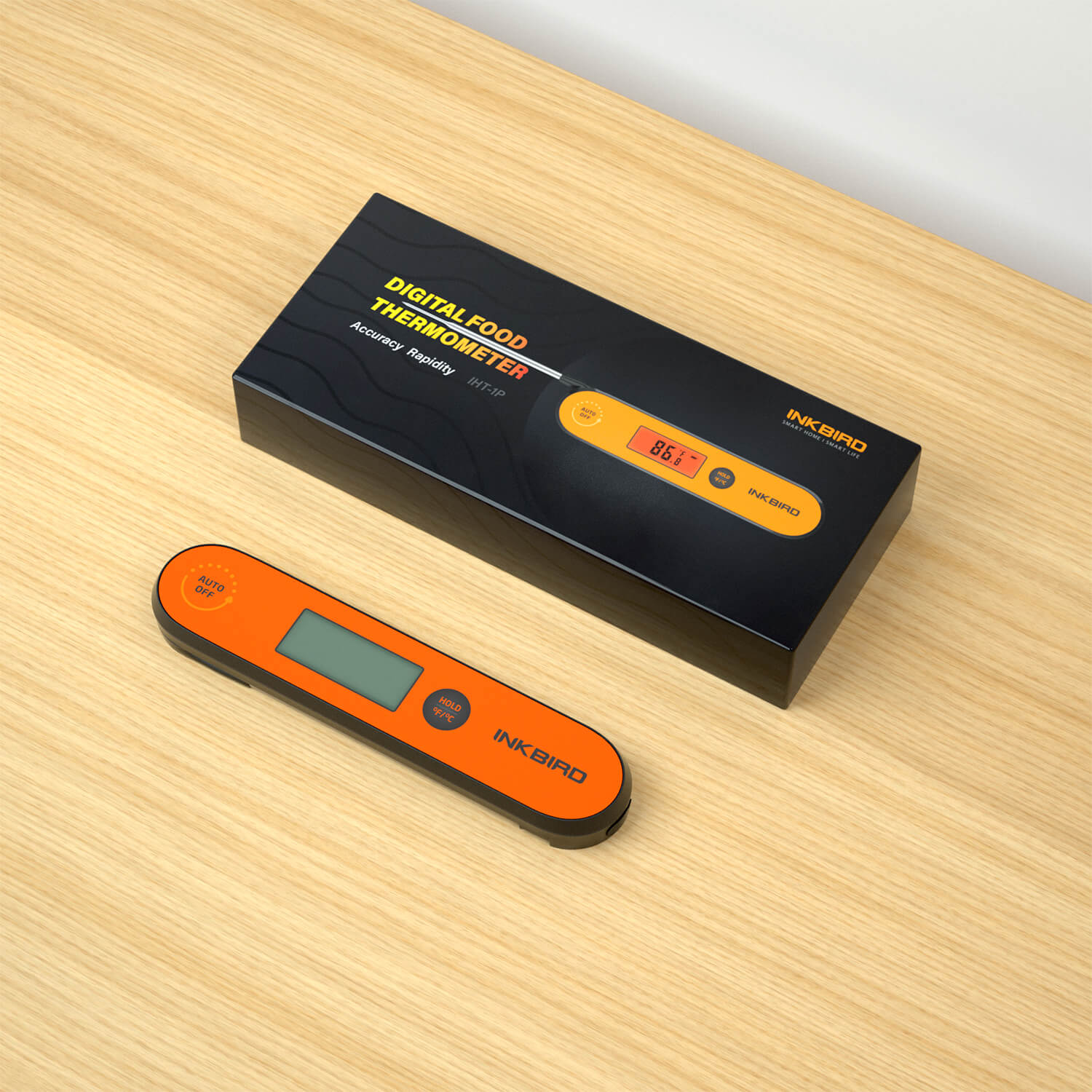None of those thermometers are fit for brewing use. Some of the cheap ($10 - $15) digital sticks are much more accurate, but you need to verify with a crushed ice bath and boiling water. If your elevation is significantly above sea level, then you need to
correct the boiling temp downwards. The "gold standard" among brewers seems to be the Thermoworks Thermopen, but it's pricey.
If you are using the stick for brewing, since it reads high, the actual temps are lower, which would explain why your beers are dryer than desired.
Brew on

You need to adjust the boiling Temperature BY PRESSURE. You can get a close approximation from a Local Airport with a weather station. While Altitude is used, it is based upon a standard day where the pressure is 29.92 in at seal level. Pressure does decrease as you gain altitude normally, but highs and lows in a weather pattern can change the pressure at a specific altitude.
You need both elevation and pressure to be accurate.
This is a great online calculator:
https://www.thermoworks.com/bpcalc
How to test a Thermometer for boiling.
https://blog.thermoworks.com/thermometer/thermal-secrets-boiling-point-calibration/
How to test a Thermometer in an Ice Bath:
https://www.thermoworks.com/thermapen101_creating_an_icebath
You should check your Reference Thermometer (Thermapen) in this manner and use it to check your other Thermometers.
The Thermapen is certified when you get it and very accurate.
We check ours on a regular basis by checking our Mash with an Instant Read like the Thermapen. If it seems off, we go with the Thermapen and then calibrate the off Thermometer (or replace it) before the next brew.
If you can Calibrate you Thermometer, then do so. If it is a manual screw, be aware that if it can be adjusted, it can also move by itself over time.
BruControl can make adjustments internally in different manners to help you be more accurate.
Generally only the Mash, Sparge and Fermentation Temperatures are important. We also check our Thermometers against the Reference at 150 F because we Mash between 148 and 156. We also check them at 165 F and 65 F.
If we replace a Thermometer, we do check them.
We always check in situ as wiring could effect readings.
If you want exceptional accuracy, you need a quality 3 wire RTD. When accuracy is not that important, less expensive probes may be used.
In my mind, you need to measure your Mash with the best Thermometer. If your Sparge is 160 to 170, you would be fine. Also in fermentation, slight variances are not of great concern.





